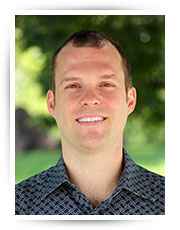CAS alumna is Marshall Scholarship finalist

Alumna Roxanne Reese has made it to the final round of the Marshall Scholarship selection process and is traveling this week for a personal interview at the British Consulate-General in San Francisco. She graduated with honors in May 2012 with BA degrees in philosophy and political science, minors in ethics and criminal justice, and a certificate of completion from the WSU Honors College. She held a WSU Distinguished Regents Scholarship throughout her undergraduate program.
“The entire WSU community is very pleased that Roxanne is but one step away from becoming the first WSU graduate to receive a Marshall Scholarship,” said Mary F. Wack, WSU vice provost for undergraduate education. “She is an accomplished scholar with well-defined career goals and she will be an excellent representative of our university and nation.”
The Marshall is one of a set of prestigious awards commonly known as “distinguished scholarships.” It was established in 1953 by the United Kingdom Parliament to provide funding for up to 40 exceptional American students each year who seek to pursue graduate education in the U.K.
NSF grant to study corporate influence on government

Sociologist and new member of CAS faculty Mikhail Balaev has received a two-year National Science Foundation award to study political and corporate ties in the American government. The grant will enable him to collect and analyze data related to the professional affiliations of presidential appointees since 1978 in order to create a network model of the ties between corporations and executive government.
Balaev is a macro-sociologist with broad academic interests in economic and political sociology. Growing up in Soviet Russia, he witnessed the massive socio-economic change brought by the collapse of the Soviet Union, which inspired his interest in sociology.
New insights into role of belief in learning

With support from a $1.6 million grant, a new CAS faculty member is studying people’s beliefs about whether intelligence can be increased and how these beliefs shape our attitudes, behaviors and expectations.
Joyce Ehrlinger, assistant professor of psychology, has begun working with teachers at Pullman High School to apply some of her research to improve students’ math skills. She is reaching out to other educators at WSU and in the surrounding community who can work with youngsters to help them develop “the mindset that they can become smarter.”
“We have tools that have been proven to improve kids’ performance on standardized tests, ultimately just by teaching them this idea that intelligence is changeable.”
Washington state GMO labeling may be decided by relatively few voters
Voting strictly by absentee ballots, citizens of Washington state soon will decide, among other, lower-profile issues, whether the state will adopt Initiative 522 to label foods that contain genetically modified organisms (GMO). The theory behind the state’s unique, all-absentee-ballot system is that more people will participate if it’s more convenient.
However, it hasn’t entirely worked out that way, says Travis Ridout, WSU professor of political science.
“Most studies show that vote by mail increases turnout a little bit just because of the convenience factors but maybe not as much as supporters of it would hope,” Ridout said. In an off-cycle election with little on the statewide ballot, like the one this year, about 30 percent of the state’s residents are likely to vote, he predicted. Thus, the decision of whether to become the first state in the country to require GMO labeling on food, which could encourage other states to do the same, might come down to roughly 1.2 million votes.
